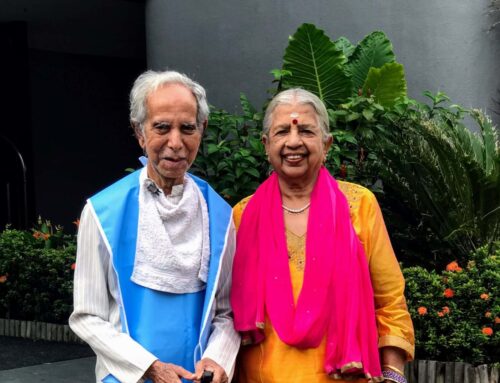Striking a balance in India between growth and green
After 20 years in the US, my husband and I decided to uproot our family five years ago and move back to India, the country of our birth.
It was a decision fraught with confusion and conflict, mostly because America’s pleasures were very tangible whereas everything that we were moving back for was intangible and immeasurable.
How to quantify the value of having our children grow up yards from their grandparents? What we were giving up, on the other hand, was easy to measure: a Wall Street job for my husband; the opportunity cost of moving geographically far away from the centre of finance for him and magazine journalism for me.
India’s environment minister, Jairam Ramesh, has to make exactly these kinds of calculations. How to balance the value of preserving the nesting sites of endangered olive ridley turtles, which follow an ancient and instinctive ritual by coming ashore to lay eggs on the beaches of the north-eastern state of Orissa, versus the development that a US$12 billion (Dh44.07bn) steel project will bring to the state?
Five years is a long time to wait for a government clearance, but that’s what it took for the South Korean steel company Posco to get a “conditional” go-ahead from the environmental ministry of India to set up its project in Orissa.
The project, which is India’s largest foreign direct investment so far, encountered numerous hurdles, mostly environmental. Of the 1,620 hectares that Posco required, 1,173 are covered by pristine forest. Part of the site earmarked for a port is where endangered olive ridley turtles lay their eggs.
Betel nut farmers have complained they will lose their livelihood, and villagers, many of whom claim tribal origins, are protesting against the project, saying they will be forced to move.
When China and the US were expanding their economies, they didn’t continuously have to consider the environment. India doesn’t have that luxury. In granting conditional clearance to Posco, Mr Ramesh is trying to balance sustainability against growth, and the interests of environmentalists with those of industrialists. Industry welcomes Posco, expecting it to shore up India’s FDI-friendly credentials.
Environmentalists are worried about the implications. Mr Ramesh has tried his best to please all parties by earmarking 25 per cent of the planned project as a “green” area, and by requiring Posco to come up with detailed blueprints for the regeneration of mangroves and for turtle conservation. Critics say it will not be hard for the company to circumvent these conditions and that they are therefore meaningless.
The larger question is: will India get the balance between growth and sustainability right? Some argue that a developing economy in its sweet spot of growth should not worry too much about the environment. After all, the West, the tiger economies and then China grew rapidly first and only then started worrying about what they were doing to the environment. It would be unfair, the argument goes, to handicap India’s growth by forcing it to consider sustainability at every stage of its development.
Critics of this argument are global and vocal. Scientists speak urgently about climate change and say emerging economies have to put aside the fairness argument in favour of a more enlightened approach. What the West did out of ignorance cannot be held up as a blueprint, they say.
Tribal rights are another complication. Many of the mineral-rich forest areas that attract mining companies are home to tribes. Preserving their rights is a fraught political issue. Gulzar Natarajan, Hyderabad’s complaints officer who has worked with tribal people in his state, Andhra Pradesh, questions the premise of tribal rights.
“Just as in any statistical sample, there are probably tribals who want to be entrepreneurs,” he says. “In our efforts to preserve tribal culture and protect them from exploitation by outsiders, are we making them museum artefacts, deprived of the benefits of economic development that all of us take for granted?”
Tribal people and turtles; FDI and forests; farmers and steel. How to balance the competing interests? One thing Mr Ramesh could do is enforce best practices more stringently – allowing steel plants that use fewer raw materials and emit less pollution. The other approach is somehow to place a value on the intangible – nesting turtles, forest cover, tribal culture.
There has to be some economist whizz-kid who can run some models on this. If a number can be assigned to these intangibles, it will at least begin to balance out Posco’s behemoth project.
The third way is just to continue the one-step-forward, two-steps-backward method that India is following, albeit involuntarily. This slow approach may affect short-term FDI inflows, but it may also be the only sustainable solution in the long-term.





Leave A Comment